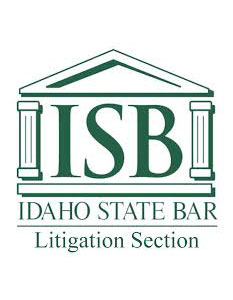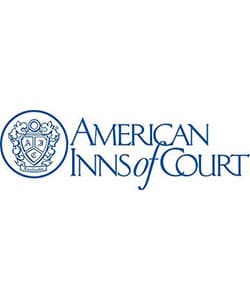Dram shop liability refers to the legal responsibility placed on businesses that sell and serve alcohol, such as bars, restaurants, and liquor stores, for any harm caused by their patrons after being served alcohol while visibly intoxicated or underage. In Idaho, dram shop laws are designed to hold these establishments accountable for their role in contributing to alcohol-related accidents and injuries.
When an establishment fails to adhere to these laws, they can be sued for damages by individuals who have been harmed as a result of their negligence. Understanding the types of damages that can be recovered in an Idaho dram shop liability case is crucial for victims seeking justice and compensation.
Types of Damages Recoverable in Dram Shop Liability Cases
When pursuing a dram shop liability case in Idaho, victims can seek compensation for various types of damages. These damages are categorized into economic and non-economic damages, each serving a different purpose in the recovery process.
Economic Damages
Economic damages refer to the quantifiable financial losses incurred by the victim due to the incident. These damages are often straightforward to calculate as they involve direct financial costs. One of the most significant components of economic damages is medical expenses. This includes the cost of emergency medical treatment, hospital stays, surgeries, medications, physical therapy, and any other necessary medical care. In cases where the victim sustains long-term or permanent injuries, future medical expenses may also be included in the compensation.
If the victim is unable to work due to their injuries, they can seek compensation for lost wages — the income they would have earned during their recovery period. Additionally, if the injuries result in a diminished earning capacity, meaning the victim can no longer perform their job at the same level or has to take a lower-paying job, they can be compensated for the difference in their earning potential.
Property damage is also covered under economic damages. If the incident resulted in damage to the victim’s property, such as their vehicle in a drunk driving accident, the cost of repairs or replacement can be recovered. Other out-of-pocket expenses directly related to the incident, such as transportation costs for medical appointments or the cost of hiring help for household chores, can also be included in economic damages.
Non-Economic Damages
Non-economic damages, on the other hand, are more subjective and pertain to the non-financial impact of the incident on the victim’s life. These damages aim to compensate for the physical and emotional suffering endured by the victim. Pain and suffering is a primary component of non-economic damages. This includes the physical pain and discomfort caused by the injuries as well as the emotional distress and mental anguish resulting from the trauma of the incident.
Loss of enjoyment of life is another significant element of non-economic damages. This refers to the victim’s inability to engage in activities and hobbies they once enjoyed due to their injuries. If the victim’s injuries result in permanent disability or disfigurement, they can also seek compensation for the loss of quality of life and the emotional toll of coping with these long-term consequences.
Non-economic damages may also include loss of consortium, which compensates the victim’s spouse for the loss of companionship and support resulting from the victim’s injuries. This aspect recognizes the impact of the victim’s suffering on their close relationships and the overall well-being of their family.
Proving Negligence in Dram Shop Liability Cases
To successfully recover damages in an Idaho dram shop liability case, the victim must prove that the establishment acted negligently in serving alcohol. This involves demonstrating that the establishment served alcohol to a visibly intoxicated person or to a minor, and that this action directly contributed to the incident that caused the victim’s injuries. Gathering evidence is a crucial part of building a strong case. This may include obtaining witness statements, surveillance footage, receipts, and any other documentation that can establish the negligence of the establishment.
In some cases, testimony may be required to explain the effects of alcohol on behavior and how the establishment’s actions deviated from the expected standard of care. Demonstrating the causal link between the establishment’s negligence and the victim’s injuries is essential. This means showing that the incident would not have occurred if the establishment had adhered to the dram shop laws.
Challenges in Pursuing Dram Shop Liability Cases
Pursuing a dram shop liability case in Idaho can present several challenges. One significant challenge is the burden of proof. The victim must provide sufficient evidence to demonstrate that the establishment’s negligence directly led to their injuries. This can be difficult, especially if the incident occurred some time ago or if the establishment denies any wrongdoing.
Another challenge is the potential for contributory negligence. In Idaho, if the victim is found to be partially at fault for the incident, their compensation may be reduced proportionately. For example, if the victim was also drinking and contributed to the accident, their recovery might be diminished based on their degree of fault.
Dram shop liability cases often involve complex legal procedures and require a thorough understanding of Idaho’s specific laws and regulations. Navigating these complexities can be daunting for victims without legal representation.
The Importance of Legal Representation
Given the challenges associated with dram shop liability cases, having legal representation is crucial for victims seeking compensation. An experienced attorney can help gather the necessary evidence, build a strong case, and advocate on the victim’s behalf. They can navigate the legal complexities and procedural requirements, ensuring that the victim’s rights are protected throughout the process.
Legal representation can also help in negotiating with the establishment’s insurance company or legal team. Insurance companies often aim to minimize payouts, and having an attorney can level the playing field, increasing the chances of a fair settlement. If a settlement cannot be reached, a knowledgeable attorney can effectively represent the victim in court, presenting a compelling case to the judge and jury.
Rules of a Personal Injury Claim Choosing a Personal Injury AttorneyRelated Videos
Seeking Justice and Compensation
Dram shop liability laws play a vital role in promoting responsible alcohol service and protecting the public from the dangers of over-serving. When establishments fail to comply with these laws, they must be held accountable for the harm caused by their negligence. For victims, pursuing a dram shop liability case is not only about seeking compensation but also about obtaining justice and holding establishments accountable for their actions.
Verdicts & Settlements
Recovering damages can provide much-needed financial relief for victims dealing with medical bills, lost income, and other expenses. It can also help alleviate the emotional and psychological burden of the incident, allowing victims to focus on their recovery and rebuilding their lives. By holding establishments accountable, dram shop liability cases can also serve as a deterrent, encouraging businesses to prioritize responsible alcohol service and prevent future incidents.
Contact Us Today
If you or a loved one has been injured in an alcohol-related incident and believe that a bar, restaurant, or liquor store may be liable, it is essential to seek legal guidance as soon as possible. The experienced attorneys at Hepworth Holzer, LLP are here to help you navigate the complexities of dram shop liability cases in Idaho. Our team is dedicated to fighting for the rights of victims and ensuring that they receive the compensation they deserve. Contact us today for a free consultation to discuss your case and learn more about how we can assist you in your pursuit of justice. Let us stand by your side and help you secure the financial support and accountability you need to move forward.











